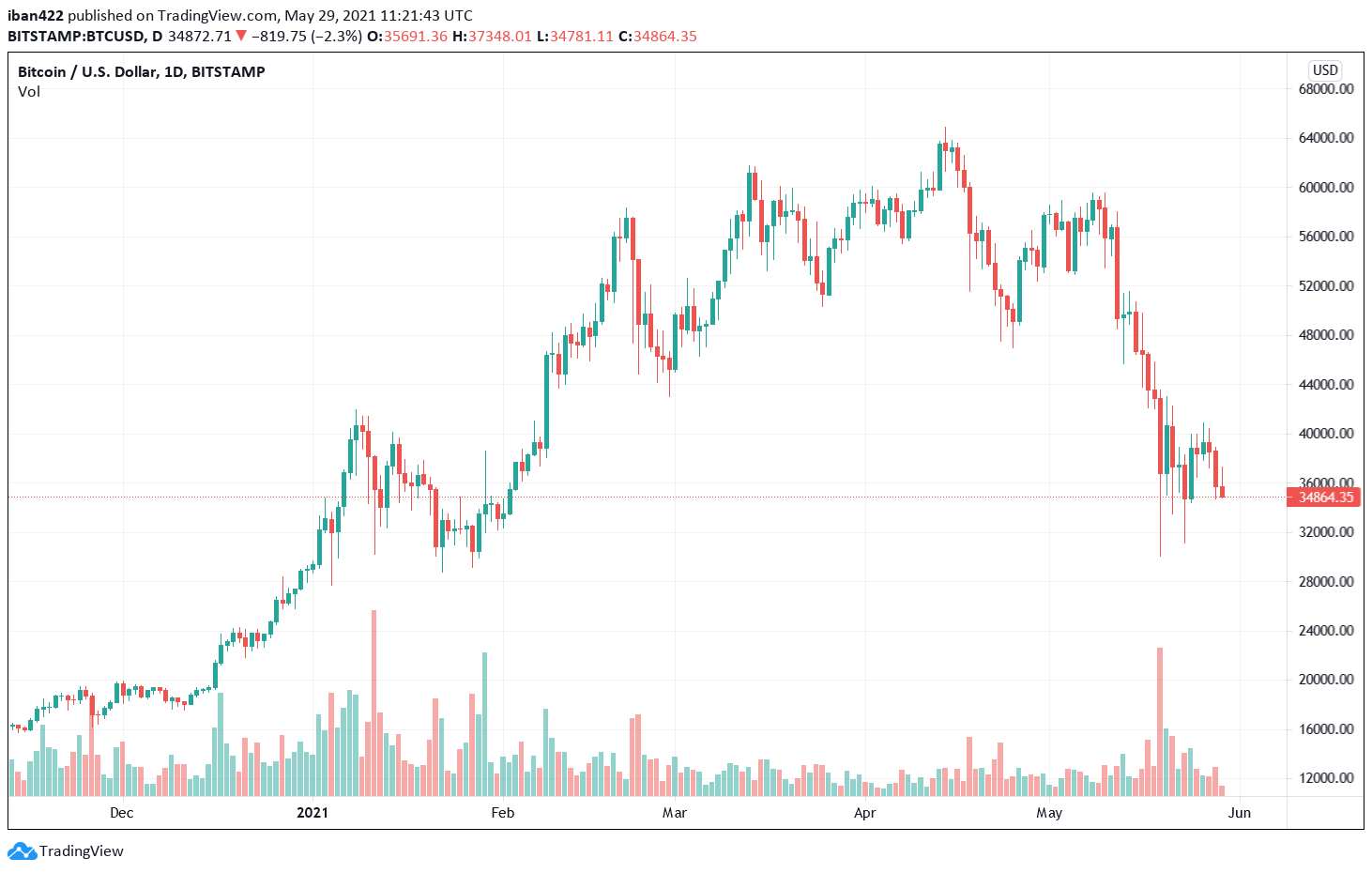
Chinese online second-hand market sees a surge in second-hand mining machines from Inner Mongolia and Sichuan.
Marketplace Sees Surge In Bitcoin Mining Machines
China’s largest online second-hand market place Xianyu has registered a surge in Bitcoin mining machines listing over the past few days especially from Inner Mongolia and Sichuan regions, the two most prolific Bitcoin mining hubs. The significant increase in the sale of second-hand Bitcoin mining machines comes amid growing crackdowns on mining operations in China.
On China's largest online second-hand commodity trading platform Xianyu, the number of mining machines has increased significantly, mostly from Inner Mongolia, Sichuan and other places, and prices are also continuing to decline. pic.twitter.com/MgSn5kEK9w
— Wu Blockchain (@WuBlockchain) May 29, 2021
Inner Mongolia has enacted new legislation that will restrict any type of crypto mining businesses in the territory. To fulfill the carbon emission goals, the new regulations prohibit all types of mining operations, large or small. After failing to achieve Beijing’s quarterly carbon emission goals, the Inner Mongolian area launched strong anti-crypto mining measures in April of this year.
Inner Mongolia, along with Sichuan, is one of the country’s most renowned Bitcoin mining centres, with multiple Bitcoin mining farms, owing to the cheap energy sources used to power these operations.
Related article | China’s Ban: Crypto and Crypto Mining May Be In A New Era
Is The Ban Currently Affecting Bitcoin?
China is presently regarded as the world’s crypto mining capital, accounting for almost 60% of the total hash power fed into the Bitcoin network. The availability of cheap clean energy sources is the key cause for the country’s large concentration of miners. Many people were concerned, however, that such a significant concentration of mining input was coming from a country with autocratic governance, such as China. As a result, many regard the recent crackdowns as a strategy to diversify mining concentration and decentralize mining power input.
When there were similar reports of a probable mining ban in the country a few years ago, miners went on a similar selling spree.
Miners have been forced to sell coins to fund a possible migration to other, more favorable countries, or to completely restructure their business as a result of the circumstance. Selling and uncertainty may persist for some time, but according to Bixin Mustafa Yilham, VP of Global Business Development, it should not dissuade bitcoin.
Instead, he says that this is a “huge opportunity” to further decentralize Bitcoin mining, and that nothing essential about the cryptocurrency has changed.
The fact that so much of the world’s mining operations were consolidated in the communist country was regarded one of the most powerful arguments against Bitcoin and a potential threat to the network.
Bitcoin mining becoming more decentralized benefits all players and, if anything, increases the cryptocurrency’s underlying strength. It might go through a few more stages of development before fresh growth is ready.

Related article | Are China’s Miners Relocating To Other Countries? Are They Selling Their BTC?
Featured image from Pixabay, Charts from TradingView.


















